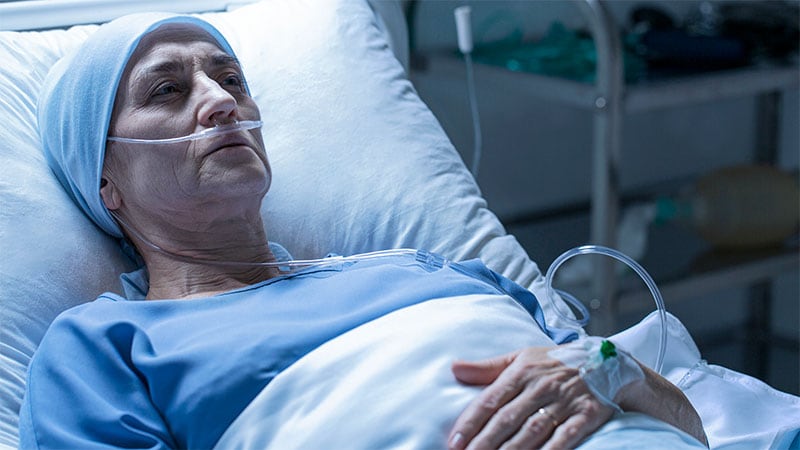TOPLINE:
Robotic-assisted thoracic surgery (RATS) was safe in patients aged 80 years or older with lung cancer and demonstrated comparable postoperative outcomes to younger patients, a retrospective study found. After propensity score matching, researchers found no significant differences in complications, hospital stay duration, and 90-day mortality between the two age groups.
METHODOLOGY:
- Researchers conducted a retrospective analysis of 340 patients who underwent major lung resections using RATS between 2015 and 2022 in Italy.
- They divided patients into very elderly patients (VEPs; ≥ 80 years; n = 28) and non-elderly patients (NEPs; < 80 years; n = 312). Patients were characterised according to demographic variables, comorbidities, forced expiratory volume in 1 second (FEV1), and clinical and pathological stage.
- Propensity score matching at a 1:3 ratio was performed to balance the two groups, resulting in 26 VEPs and 71 NEPs, using clinically relevant variables that were significantly different at baseline.
- The primary endpoint was the assessment of complications; secondary endpoints were the comparison of the complications according to the Clavien-Dindo classification, postoperative stay, and mortality rate between VEP and NEP groups.
TAKEAWAY:
- After propensity matching, complication rates did not differ significantly between VEP and NEP groups (46.2% vs 32.4%; P = .21).
- The mean hospital stay was 4 days for both age groups (P = .85), and the 90-day mortality was low and not significantly different between VEP and NEP groups (3.9% vs 0%).
- Pathological stage I disease was associated with a lower risk for complications (odds ratio [OR], 0.23; P = .006), and lobectomy was linked to a decreased risk for complications (OR, 0.29; P = .033); however, FEV1 continued to demonstrate a protective effect (OR, 0.97; P = .025).
IN PRACTICE:
“This study provides strong evidence supporting the safety and feasibility of RATS in patients aged 80 years and older, demonstrating comparable postoperative outcomes to younger patients after propensity score matching. FEV1, smoking history, and ASA [American Society of Anesthesiologists] score were the most significant predictors of postoperative complications, while age itself was not an independent risk factor,” the authors of the study wrote.
SOURCE:
This study was led by Pierluigi Novellis, IRCCS San Raffaele Scientific Institute, Milan, Italy. It was published online on June 17, 2025, in the Journal of Clinical Medicine.
LIMITATIONS:
This study was limited by the retrospective nature of the analysis and the difference in the sample size between the two groups.
DISCLOSURES:
This study did not receive any external funding. Several authors reported receiving honoraria or having other ties with various sources.
This article was created using several editorial tools, including AI, as part of the process. Human editors reviewed this content before publication.
Source link : https://www.medscape.com/viewarticle/robotic-surgery-safe-older-patients-lung-cancer-2025a1000gdm?src=rss
Author :
Publish date : 2025-06-23 12:00:00
Copyright for syndicated content belongs to the linked Source.
